Scientists from KazNARU participated in the internship "Introduction to Geospatial Technologies for Achieving SDGs – Building Resilience"
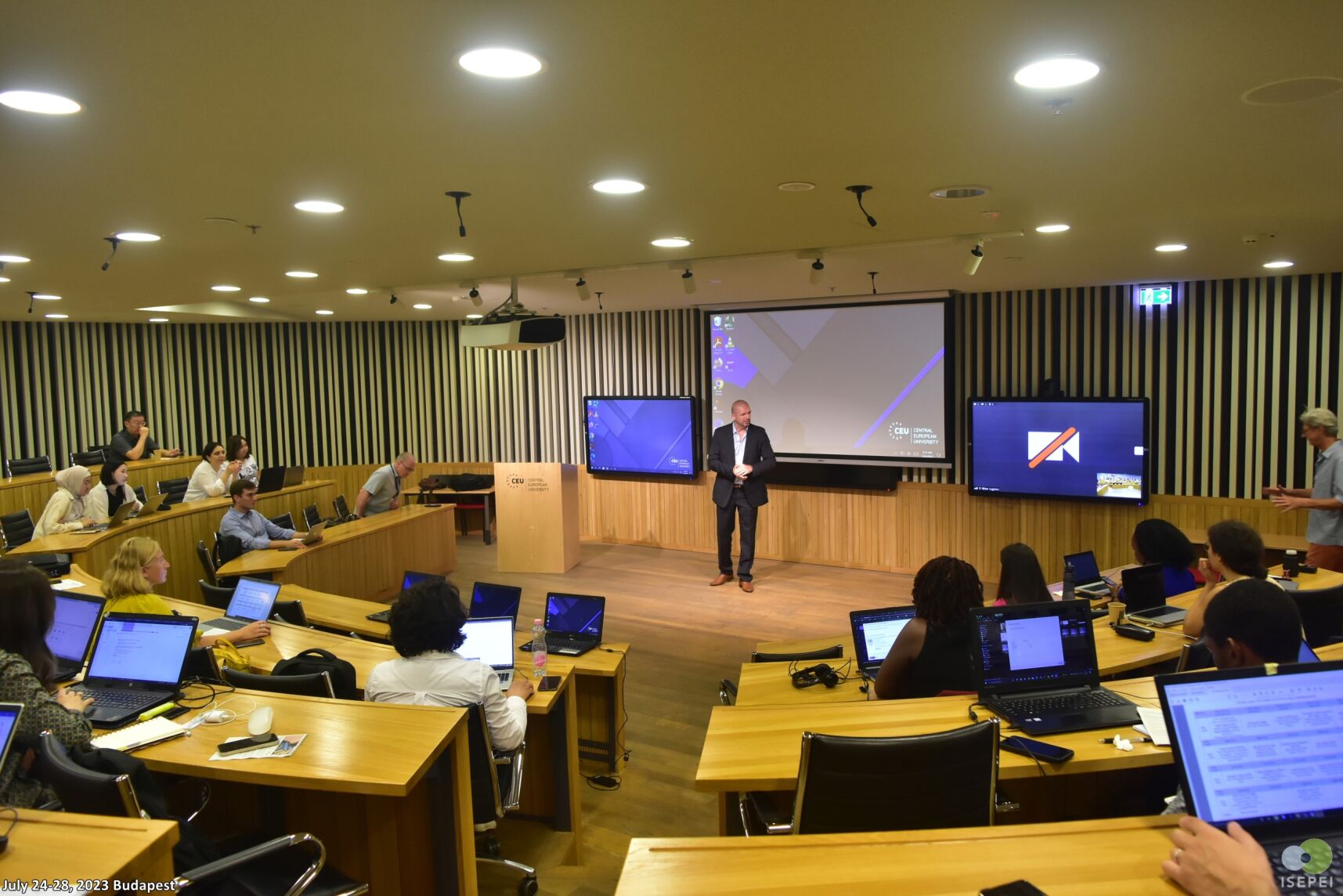
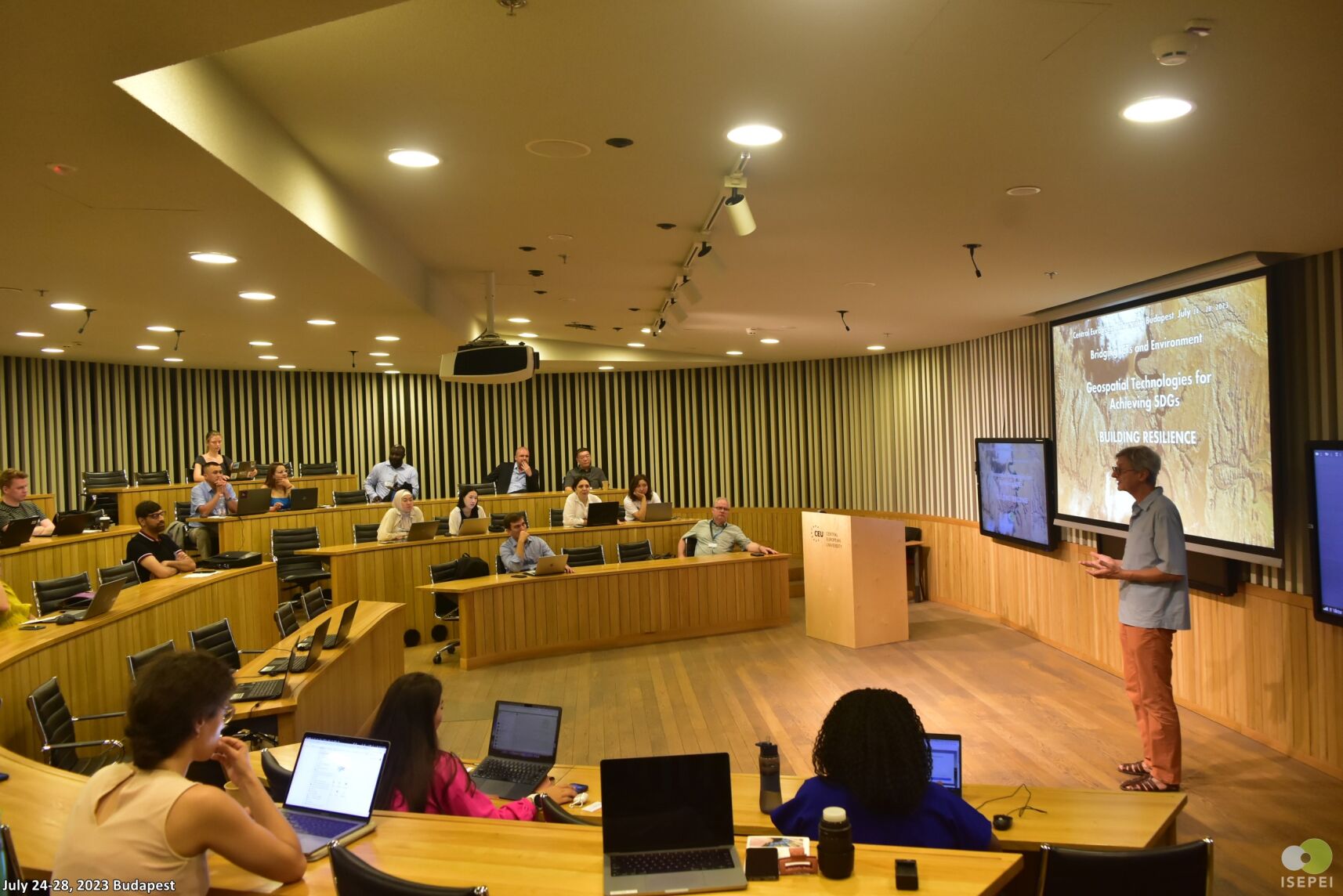
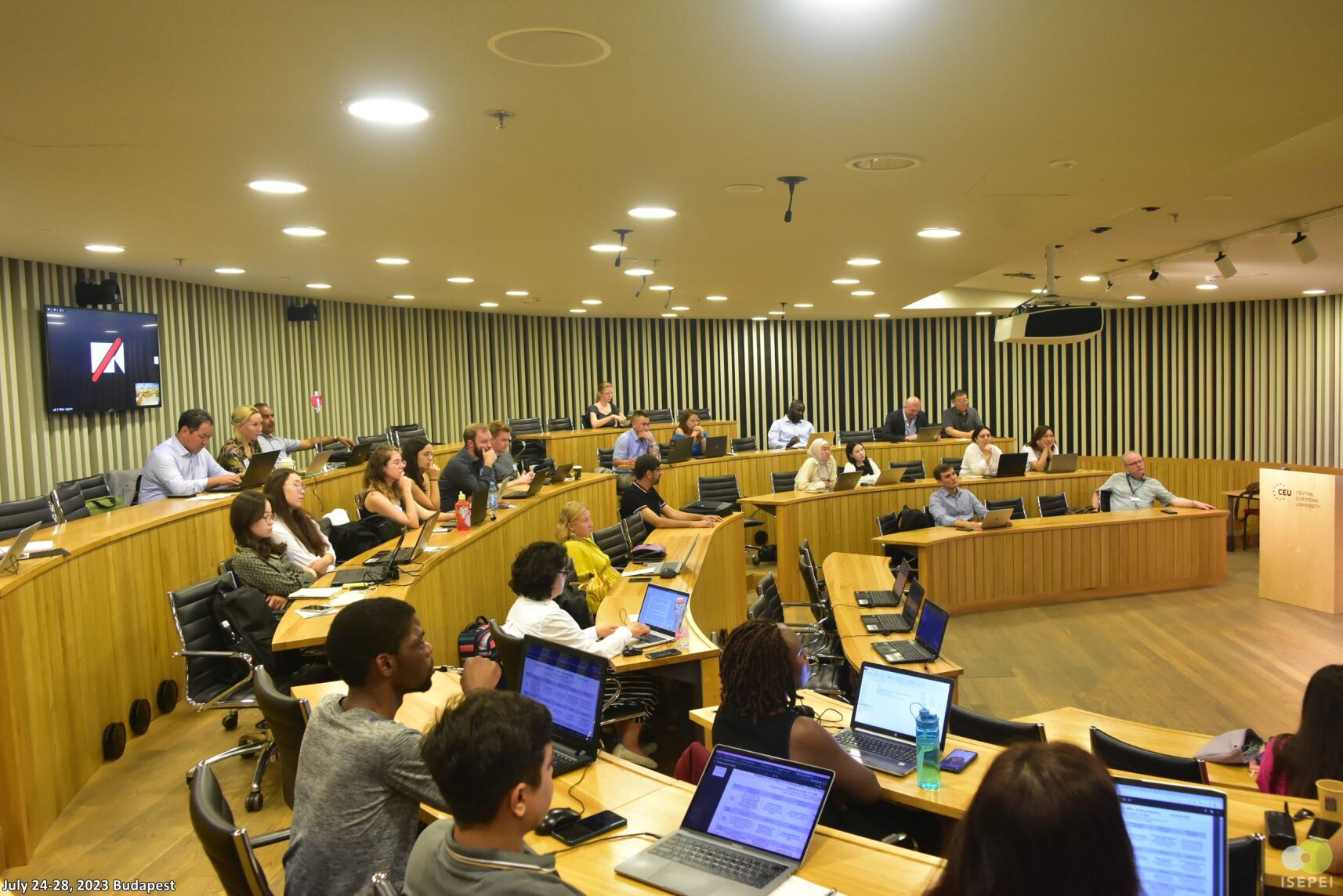
As part of the grant funding from the Ministry of Education and Science of the Republic of Kazakhstan (MES RK), the project participants of the IRN AP09057853 project for 2021-2023 underwent training as part of the course "Introduction to Geospatial Technologies for Achieving Sustainable Development Goals (SDGs) - Enhancing Resilience." This event was organized in collaboration with the United Nations Office for Outer Space Affairs (UNOOSA) and funded by the Open Society University Network (OSUN). The course was conducted as part of the seminar series "Connecting ICT and the Environment," held by the ISEPEI project. The seminars took place from July 23 to 28, 2023, in Budapest at the Central European University (CEU) building.
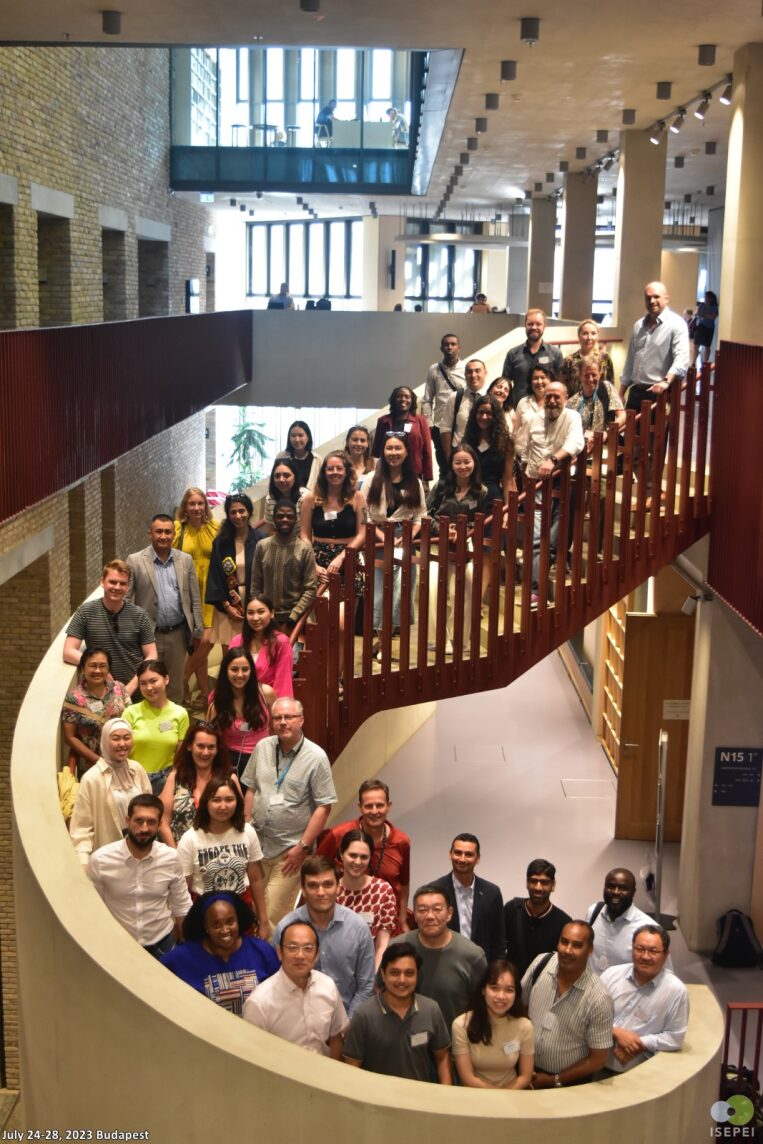
On the first day of the course, the following speakers presented:
- Lóránt Czárán (UNOOSA) with the presentation "UNOOSA / UN-SPIDER: Satellite Imagery Resources for Resilience and Disaster Management"
- Masahiko Nagai (Yamaguchi University) with the presentation "Utilizing Space Data for Resilience to Natural Disasters"
- Ashraf Abushady (UNIDO) with the presentation "UNIDO's Digital Transformation and AI Strategies"
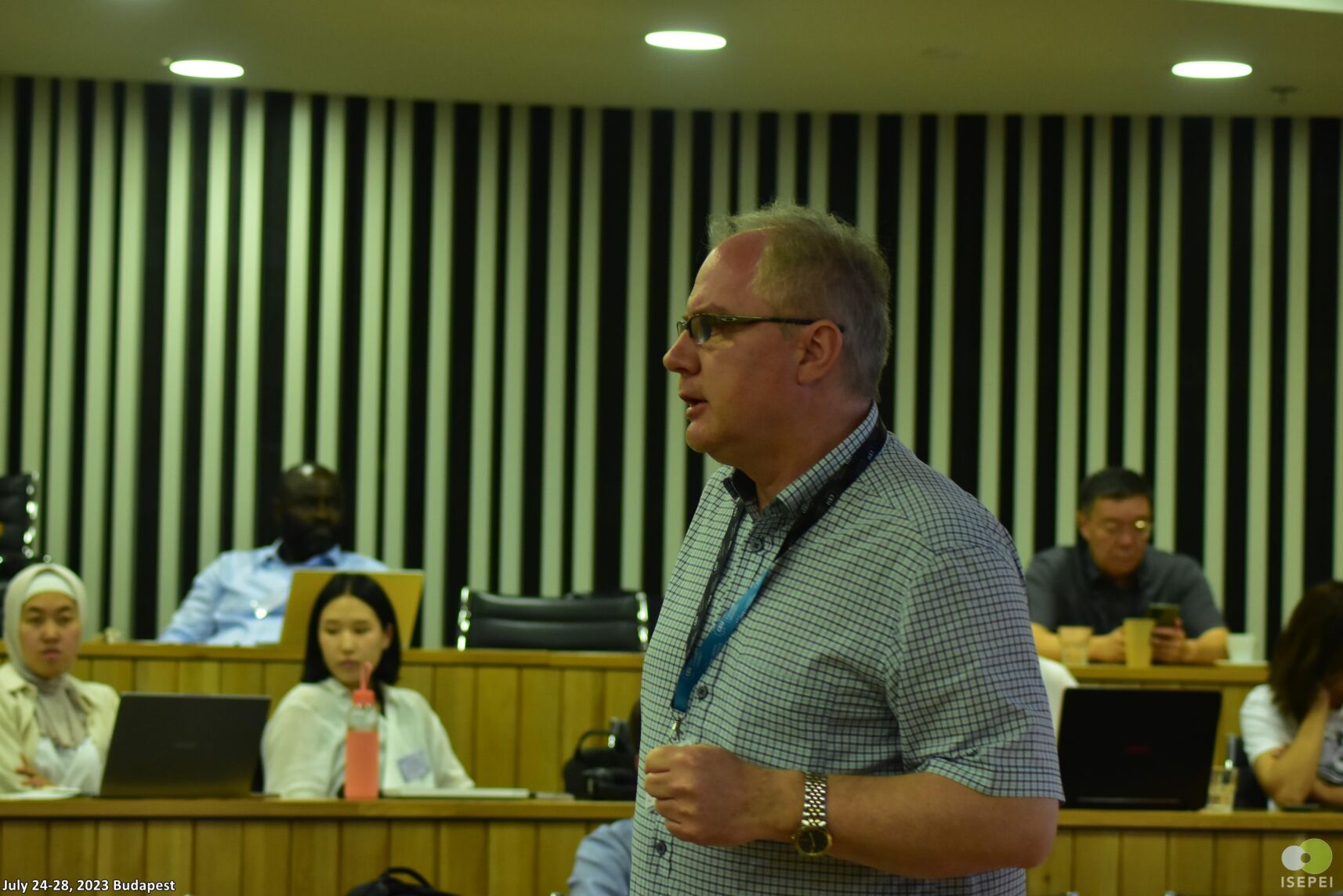
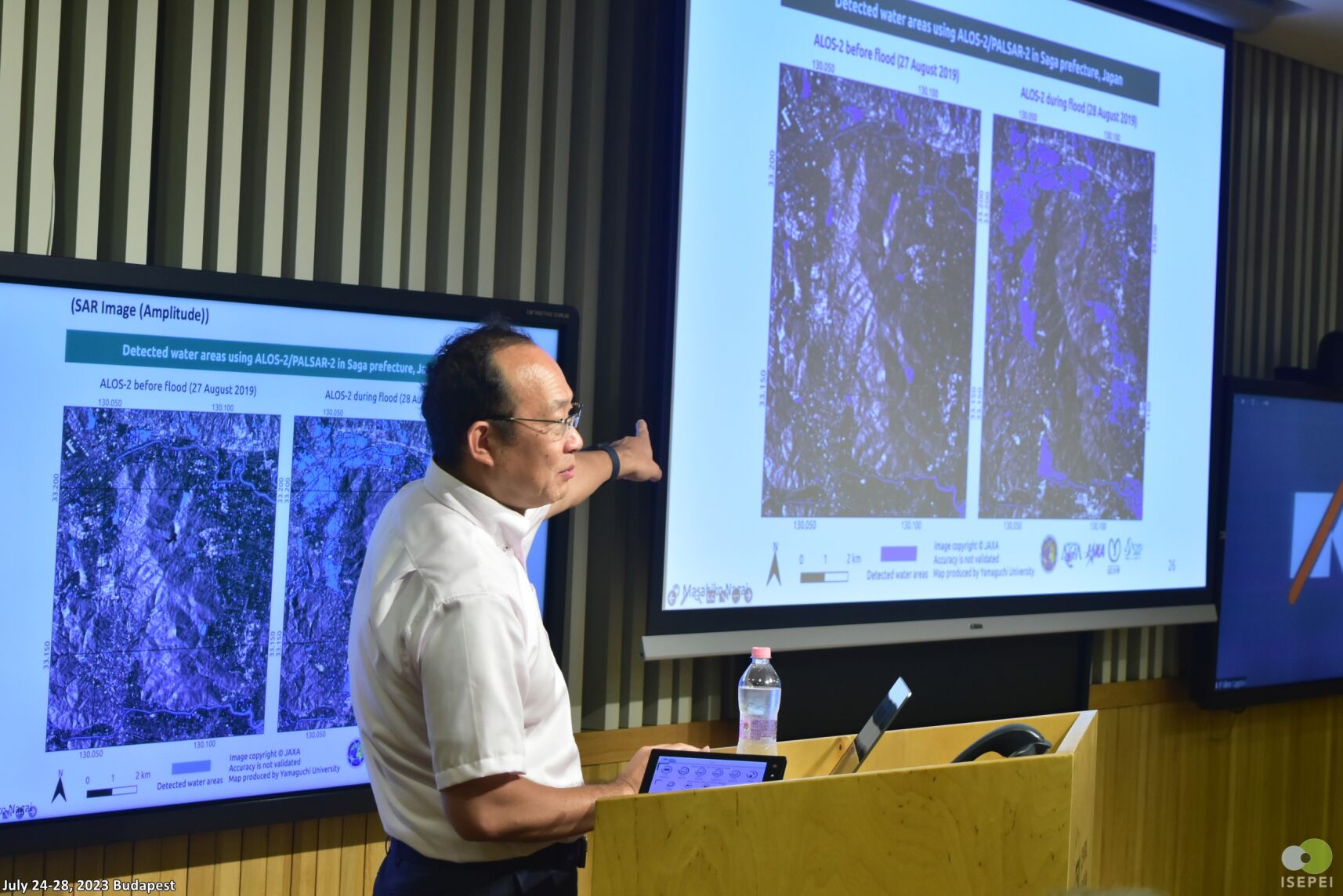
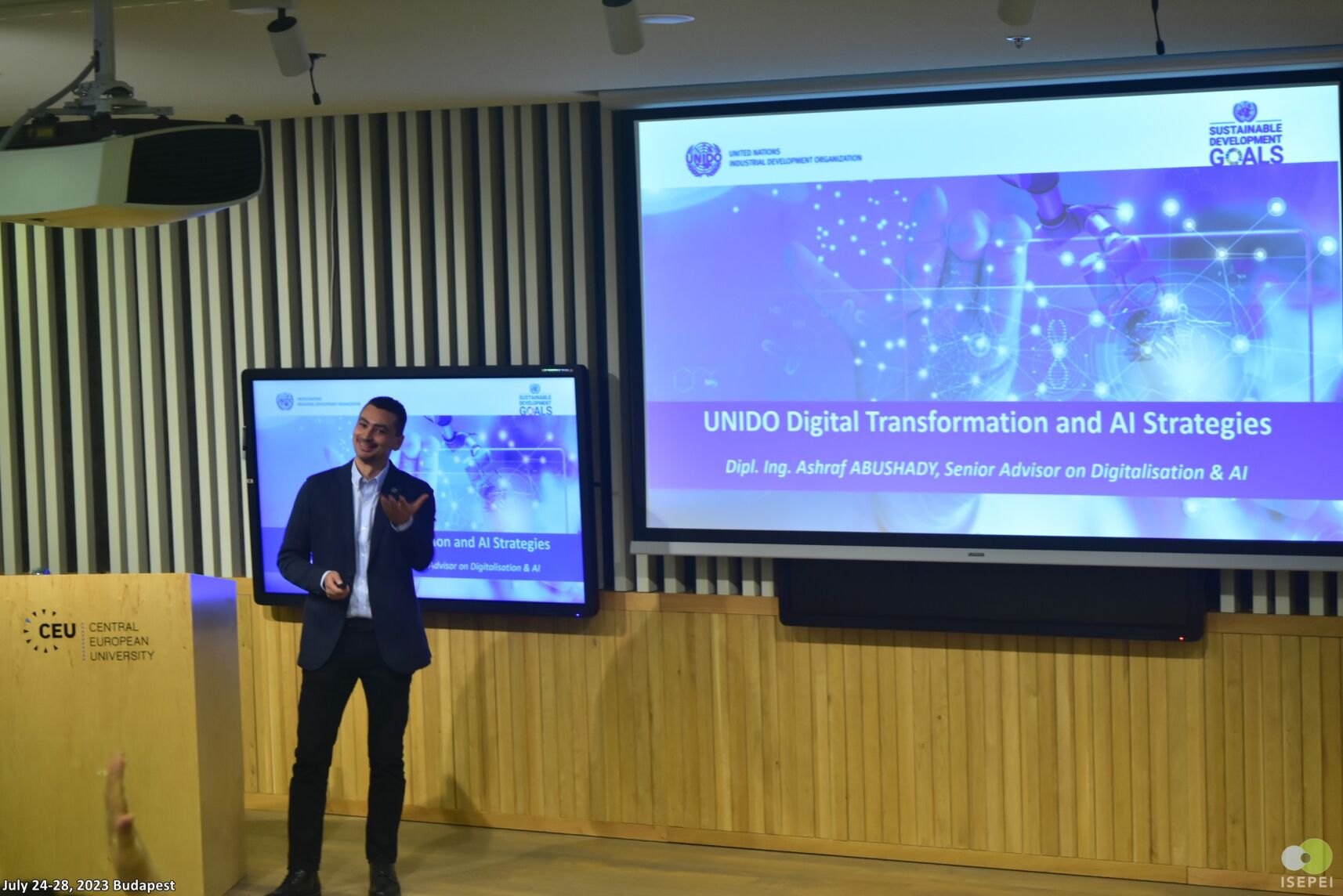
On the second day, the following speakers presented:
- Ed Parsons (Google) with the presentation "Geospatial Data in the Cloud: Environmental Information on a Global Scale from Your Web Browser";
- Alan Belward (Joint Research Centre of the European Commission) with the presentations "Introduction to Satellite Imaging and Remote Sensing" Part 1, Part 2 and "Land Degradation: Enhancing Resilience Is Imperative" Part 1, Part 2;
- Günter Dörffel (Esri) with the presentation "What is GIS? The Ubiquity of a Geographic Approach".
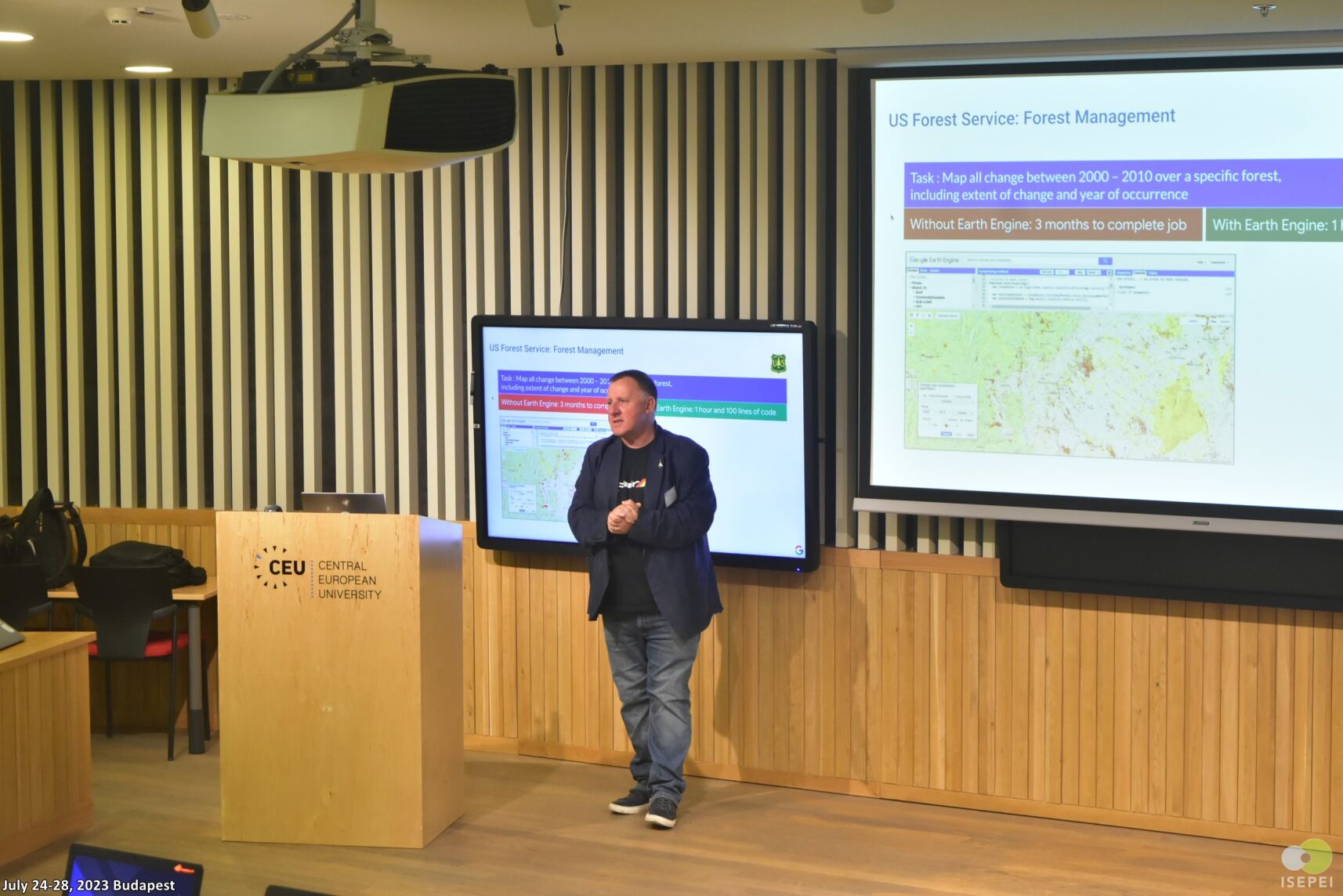
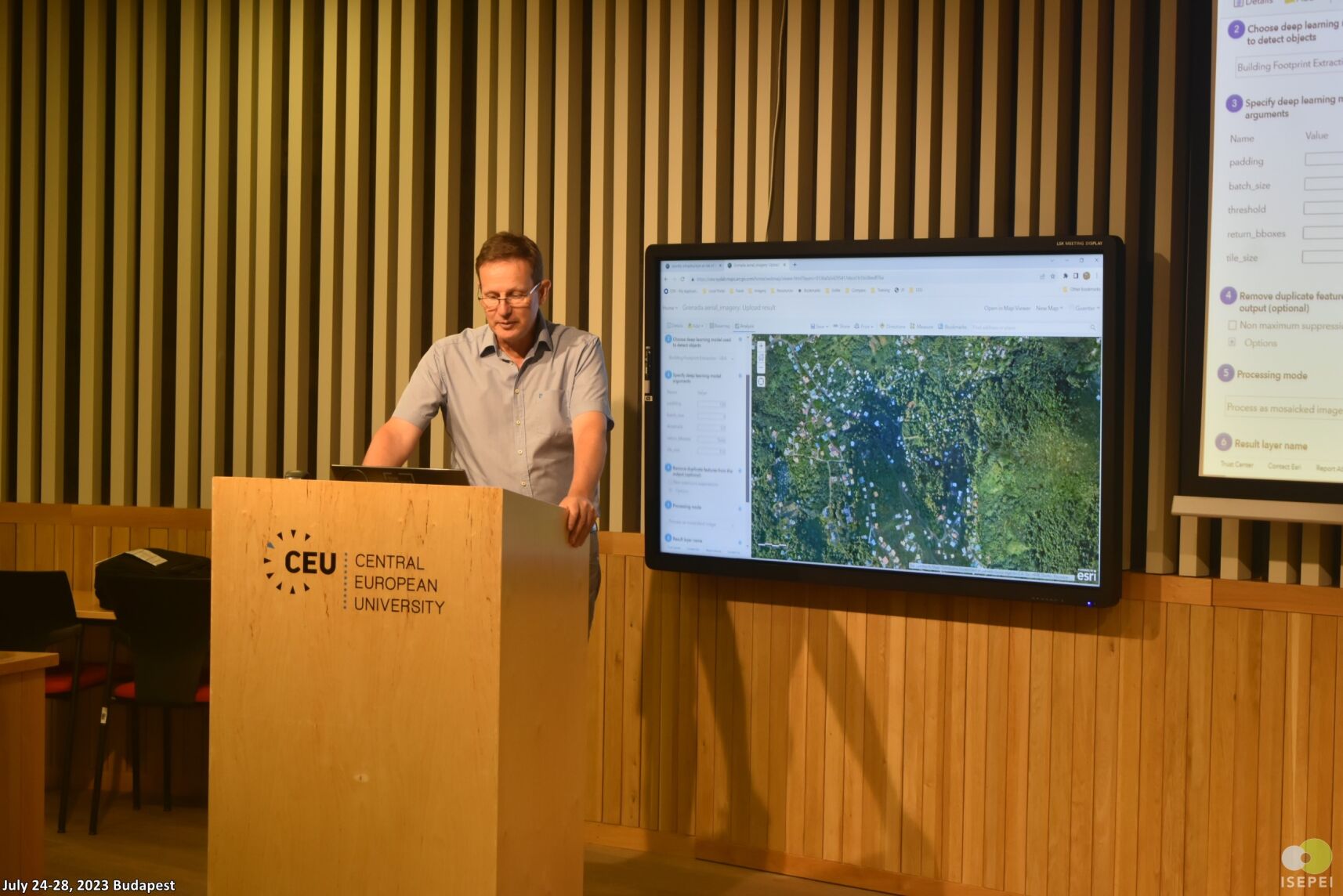
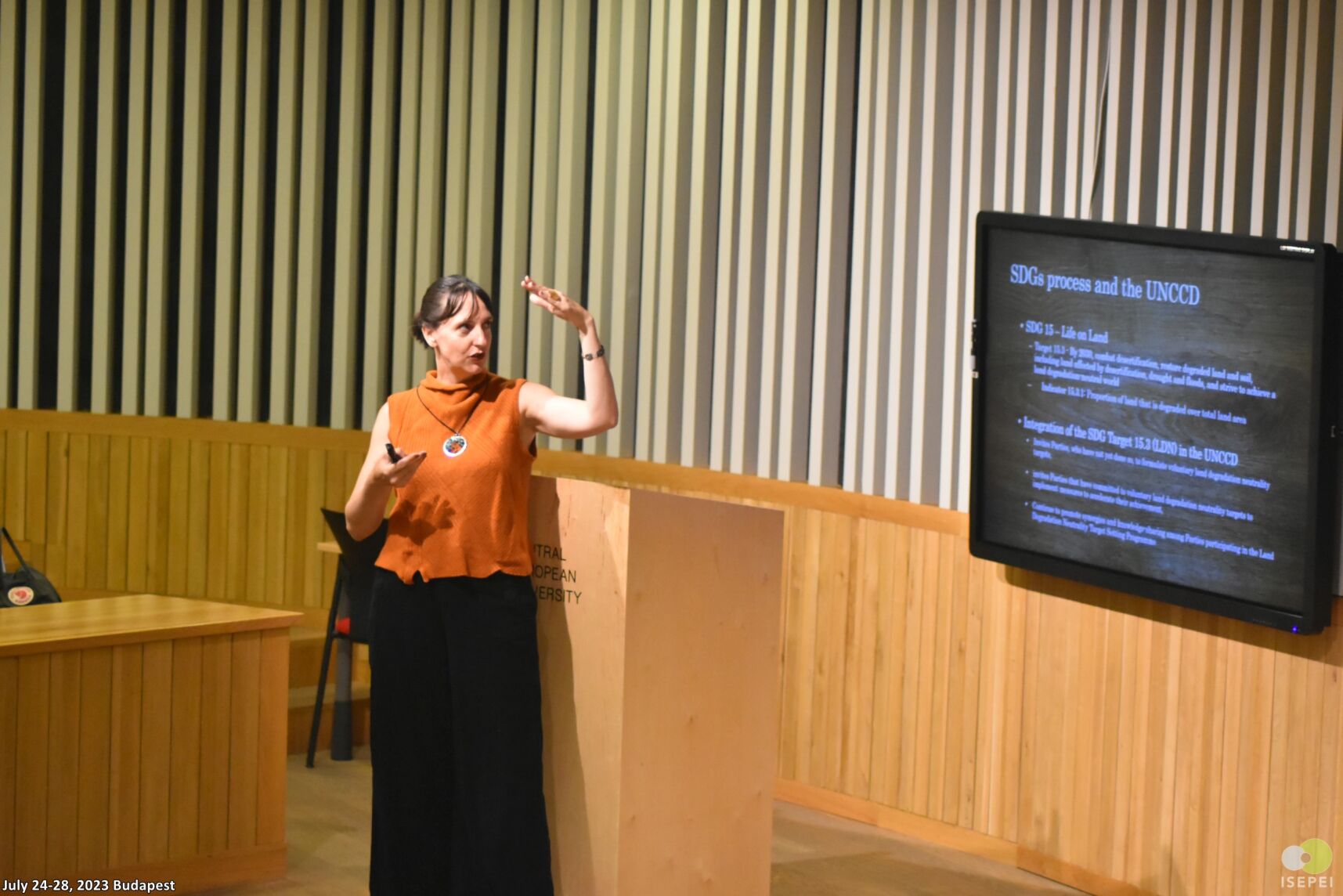
On the third day, the following speakers presented:
- Günter Dörffel (Esri) with the presentation "Reality Capture: From Object Scale to Country Scale" and a practical course on "Working with Images in ArcGIS Online"
- Carolina Starr (FAO), Brian O'Connor (UNCCD), Bernd Eversmann (GIZ), Ingrid Teich (FAO) on the topic "Decision Support System for Ensuring Land Degradation Neutrality"
- Ingrid Teich (FAO) continued her presentation on the topic "Decision Support System for Ensuring Land Degradation Neutrality"
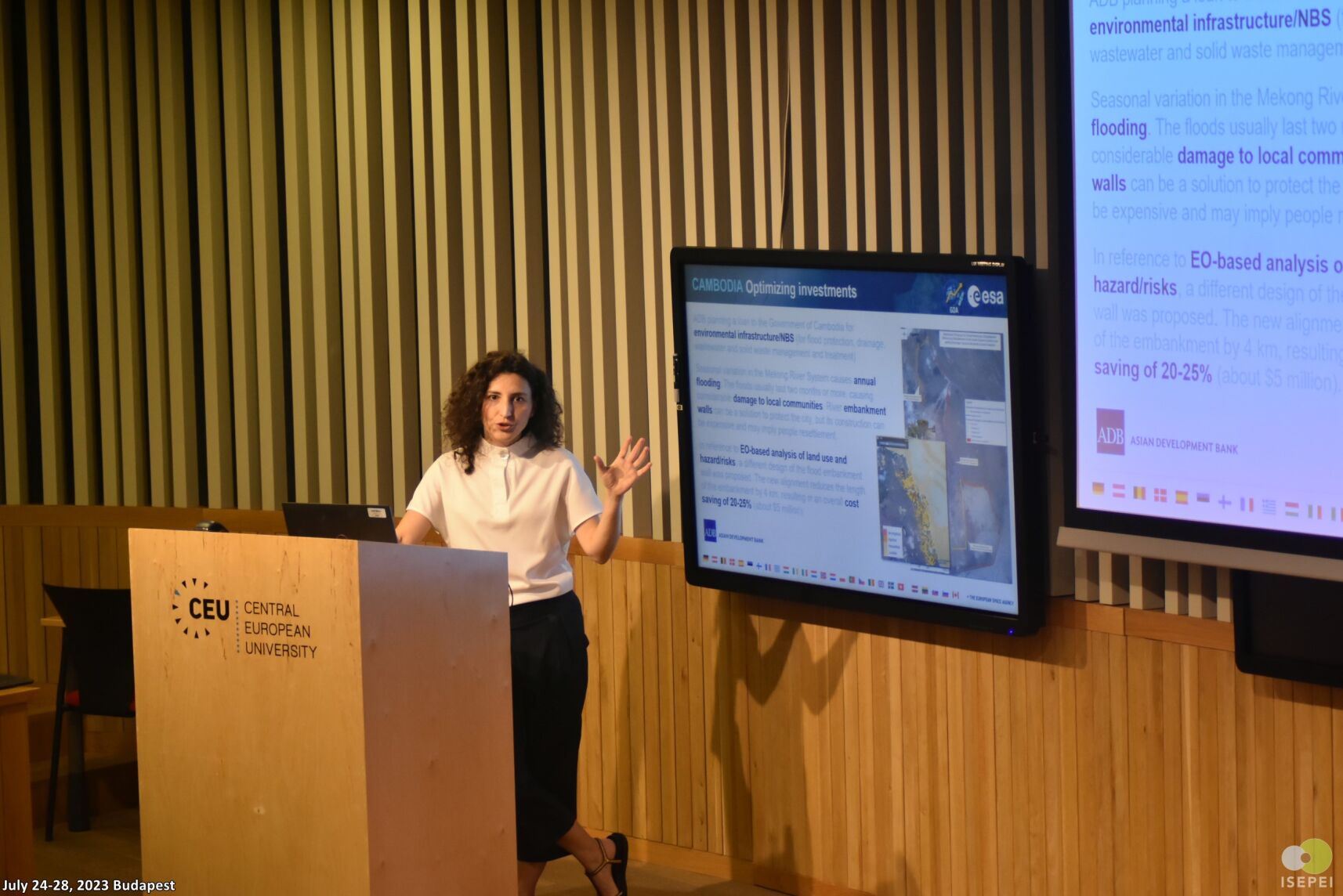
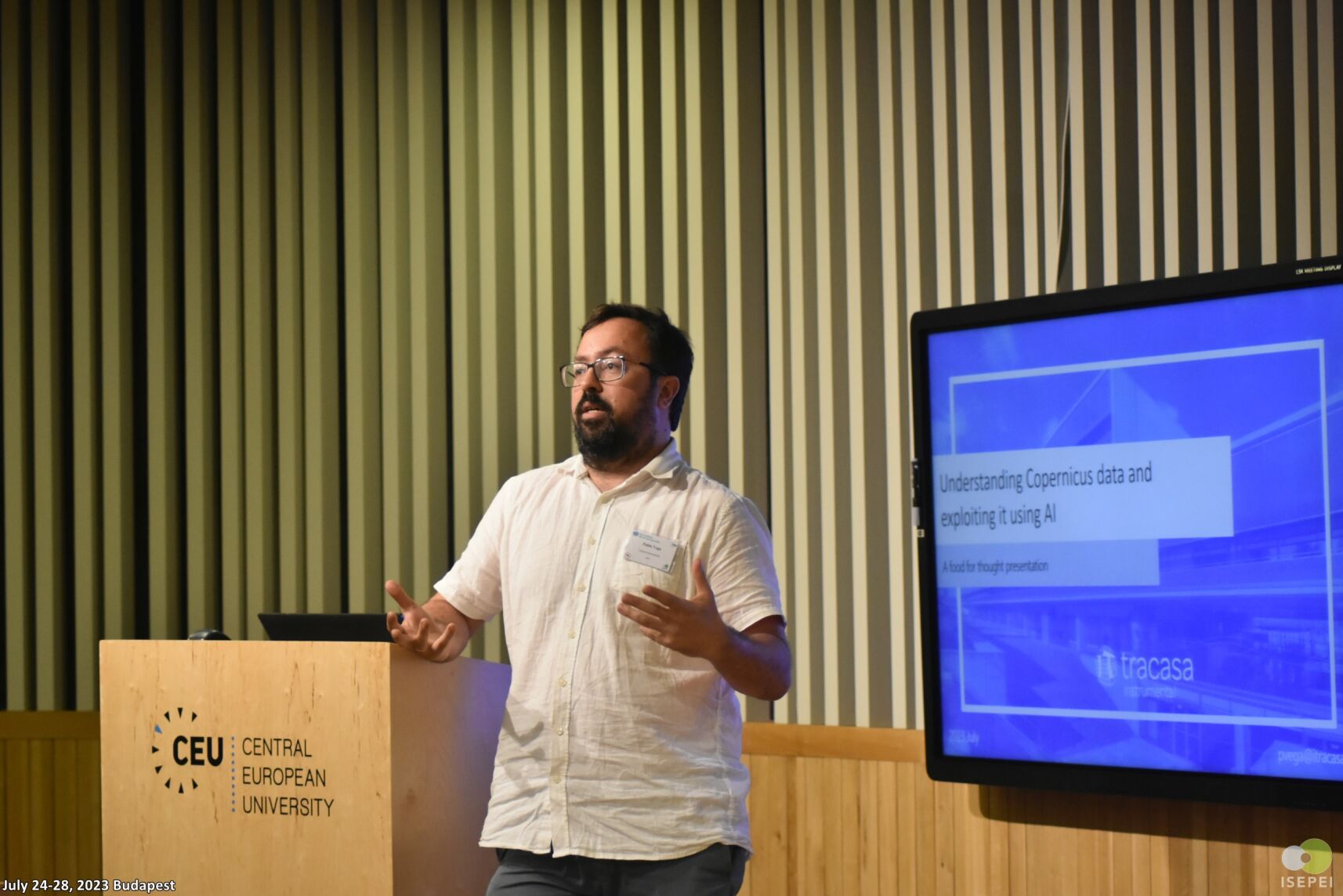
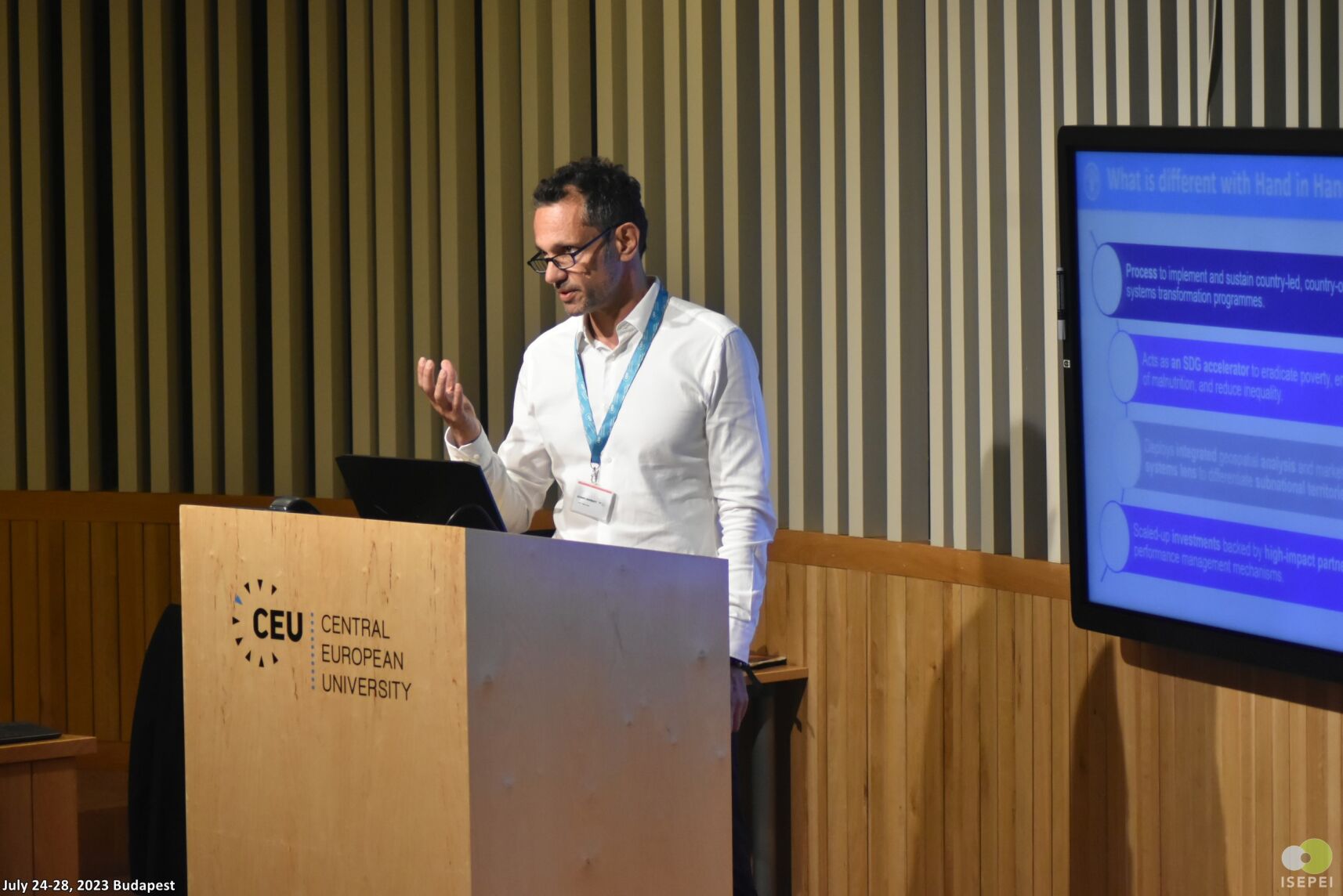
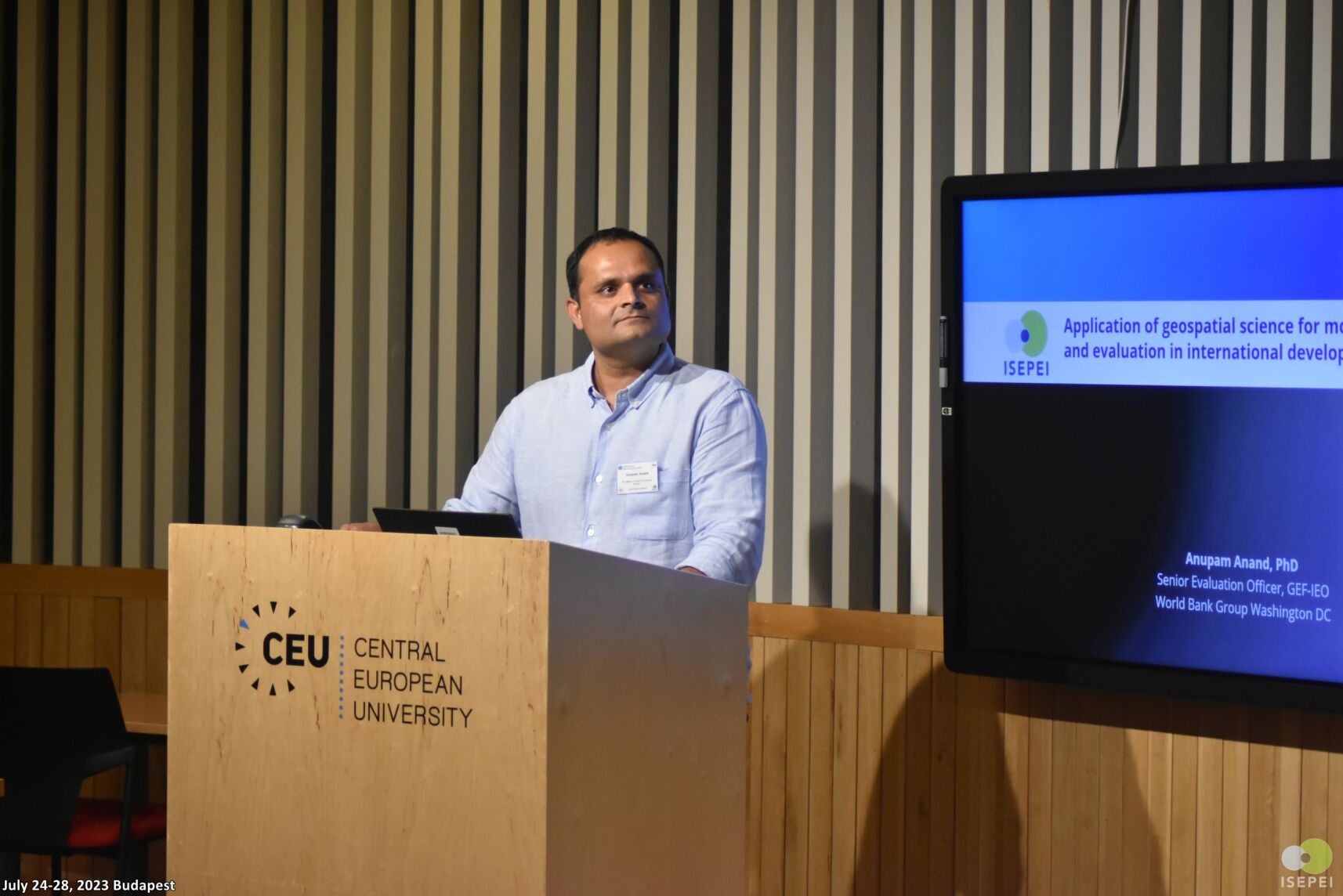
On the fourth day, the following speakers presented:
- Mariangela Caldado (European Space Agency) with the presentation "Global Development Assistance (GDA): Integrating Earth Observation for Sustainable Development"
- Pablo Vega (Tracasa Instrumental) with the presentation "Understanding Copernicus Data and Their AI Utilization"
- Nelson Ribeiro (FAO) with the presentation "FAO's Hand-in-Hand Initiative: Geospatial Platform"
- Anupam Anand (World Bank / GEF) with the presentation "Applying Geospatial Science for Monitoring and Assessment in International Development"
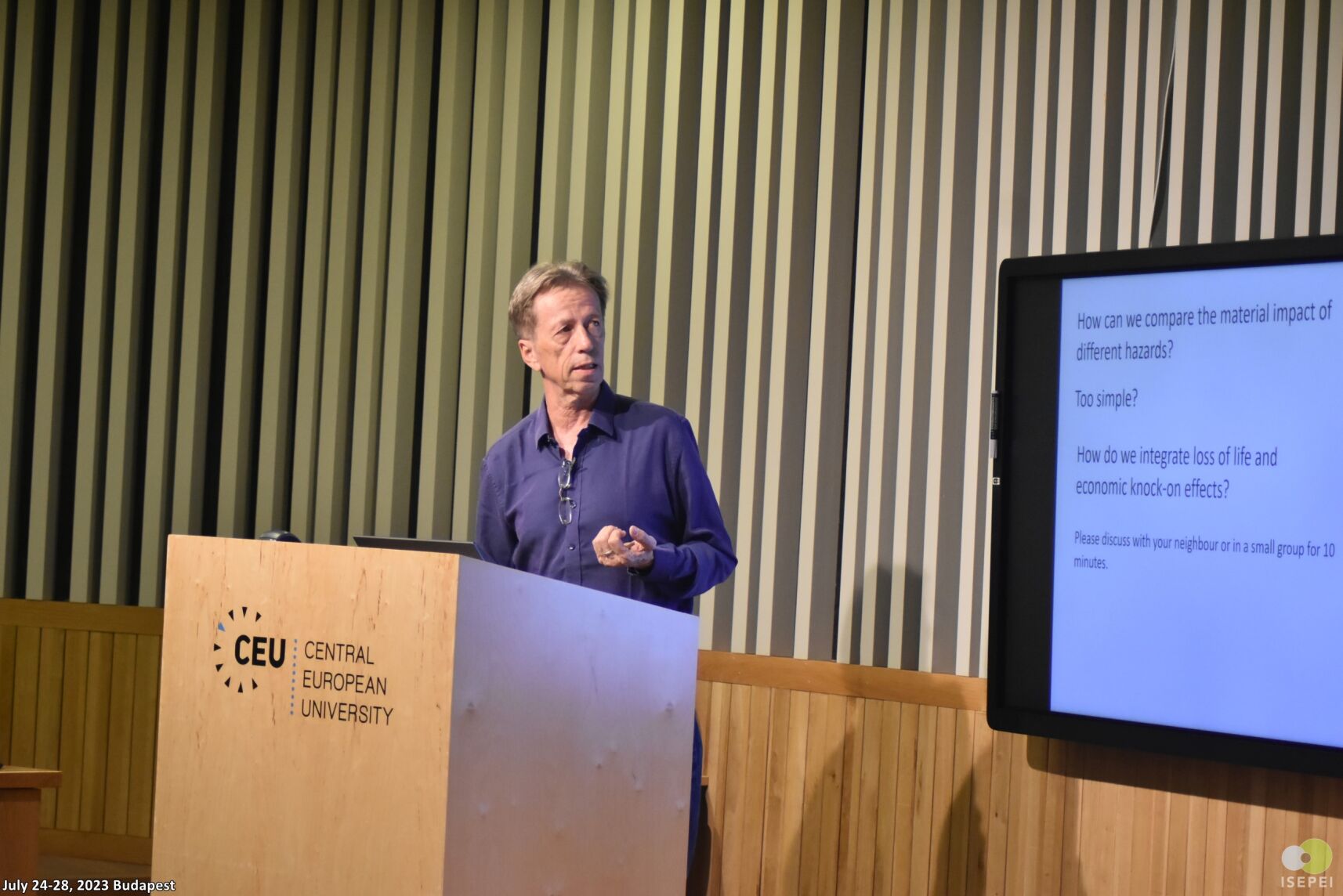
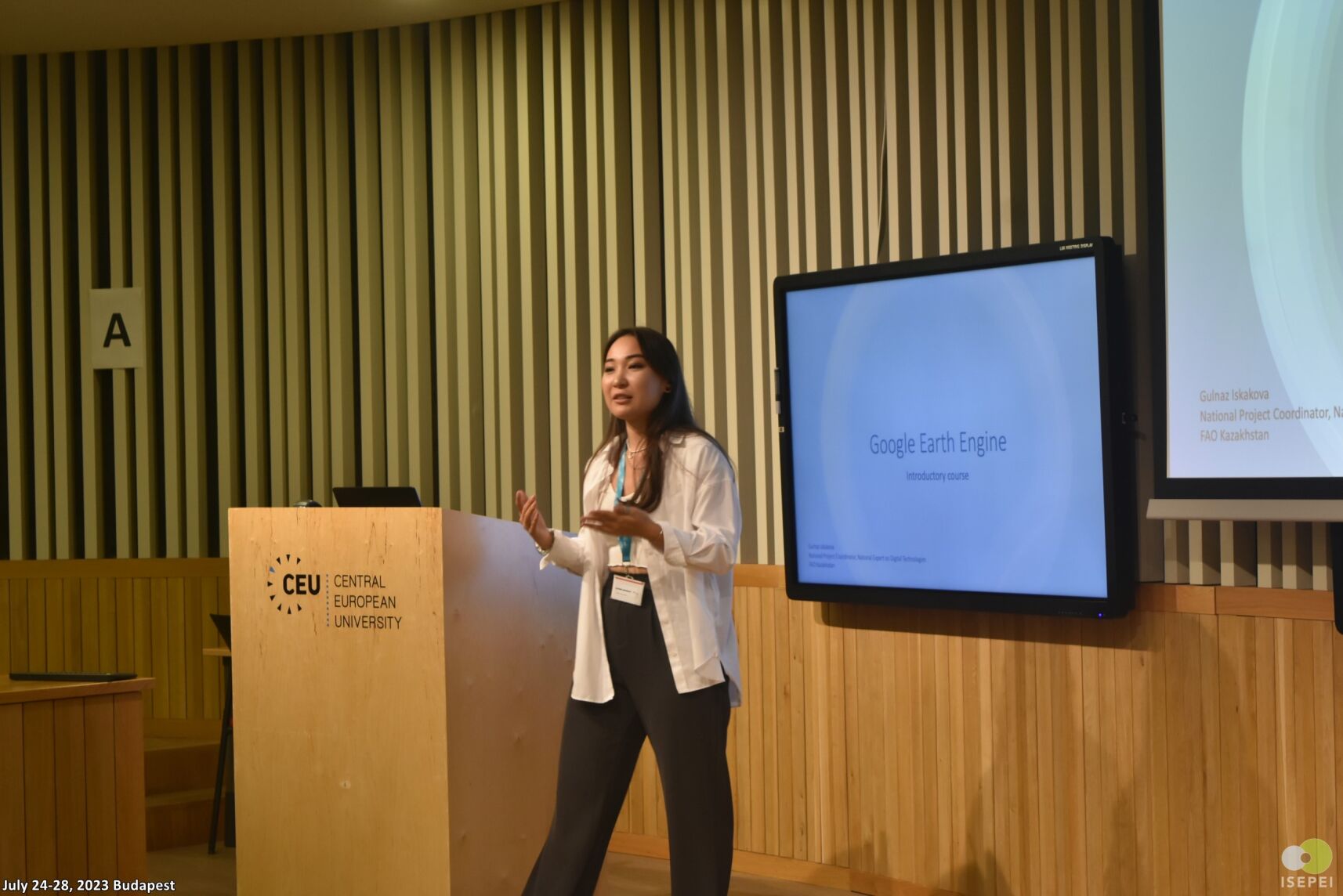
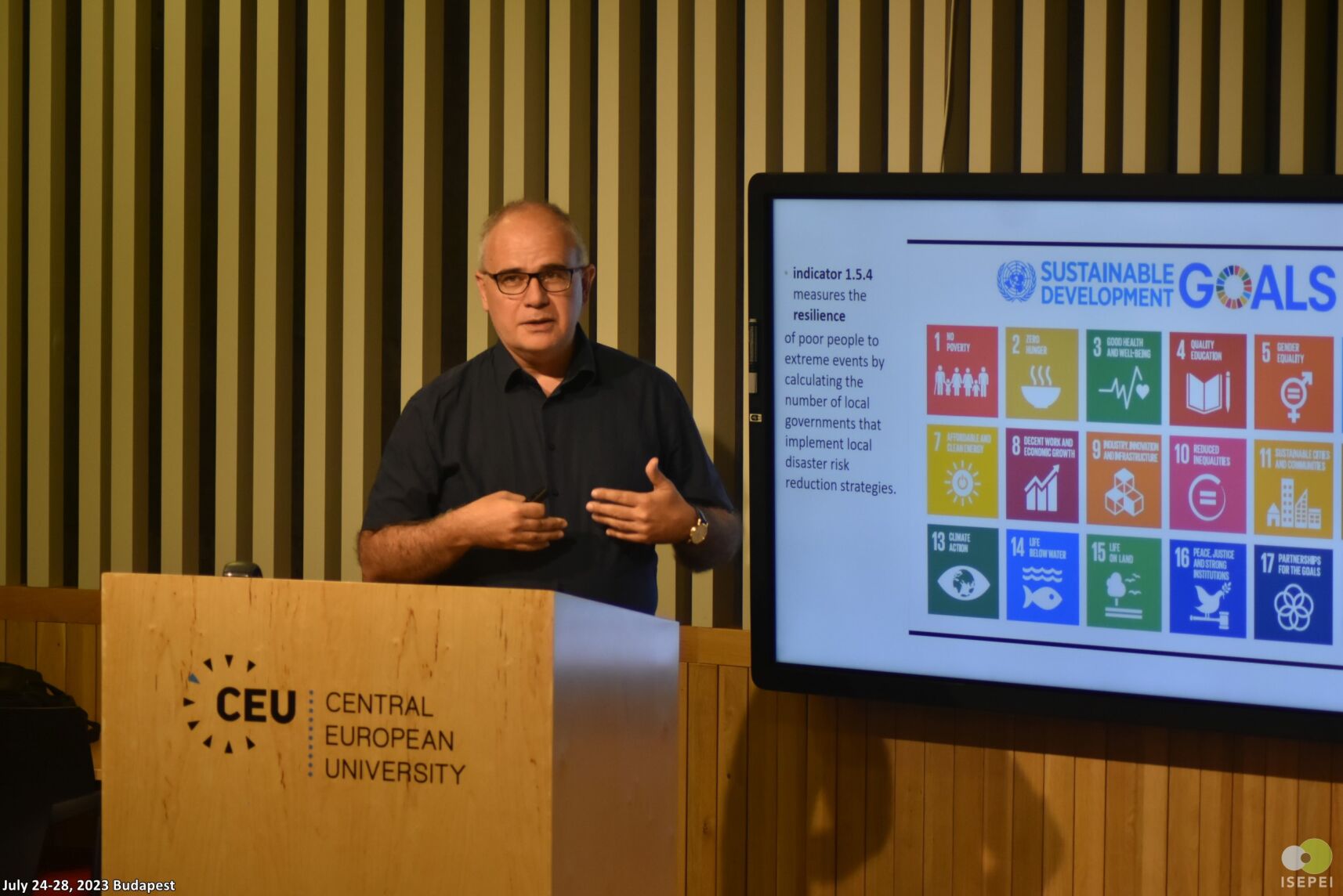
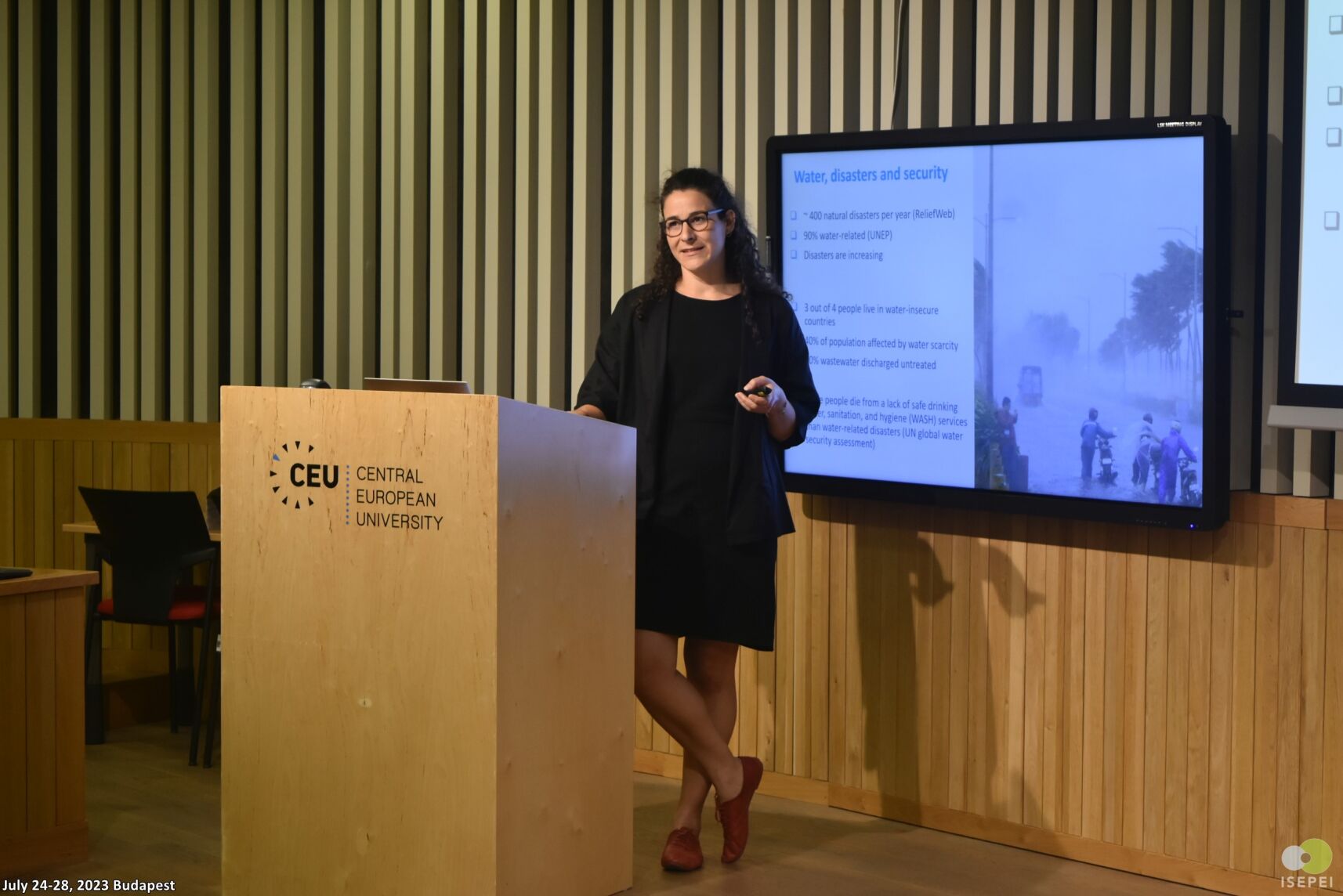
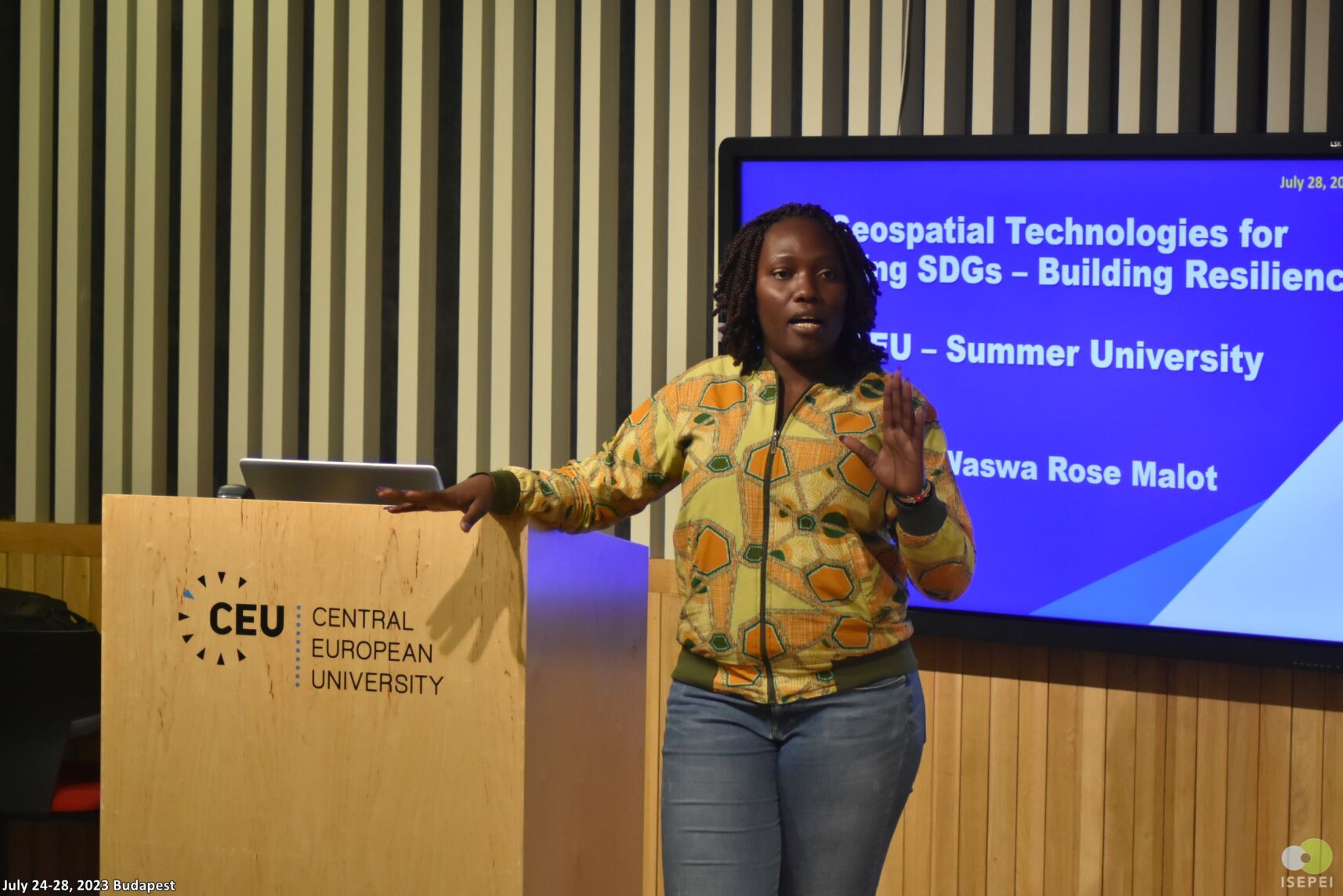
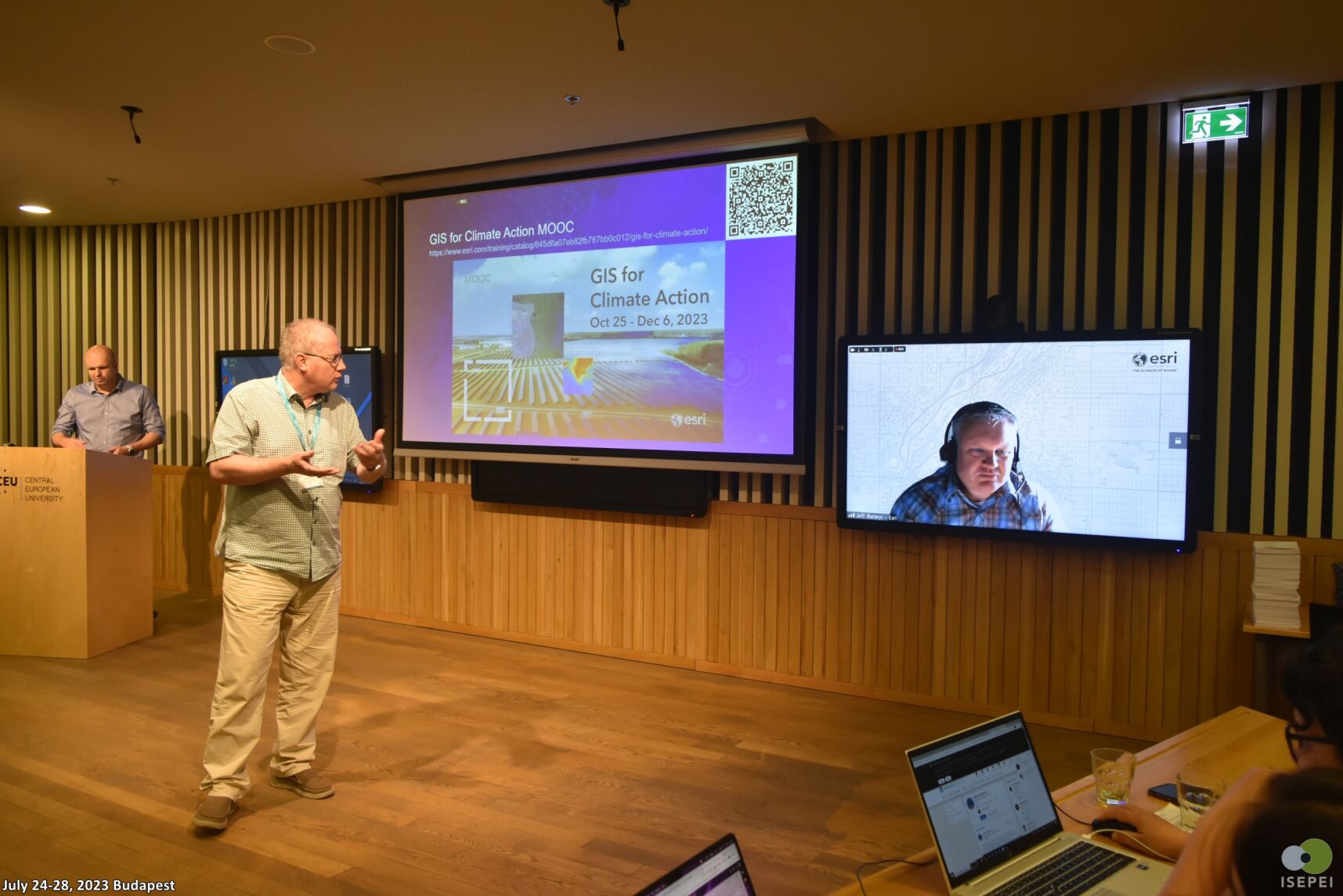
On the fifth day, the following speakers presented:
- Olaf Neussner (UNDRR) with the presentation "Assessing Climate-Related Disaster Risks and Village Relocation in Fiji Using Geospatial Methods" and rick quiz;
- Gulnaz Iskakova (FAO) with the practical session "Google Earth Engine: An Introduction"
- József Benedek (Babeș-Bolyai University) with the presentation "Resilience and Sustainable Development Goals"
- Nina Kikinger (UNOOSA) with the presentation "Space4Water: Communities Key to Resilience Enhancement"
- Roze Vasva (Regional Centre for Mapping of Resources for Development) with the presentation "Geospatial Technologies for Achieving SDGs - Enhancing Resilience"
- Jeff Baranyi (Esri) with the presentation "Integrating Sustainability into Emergency Management"
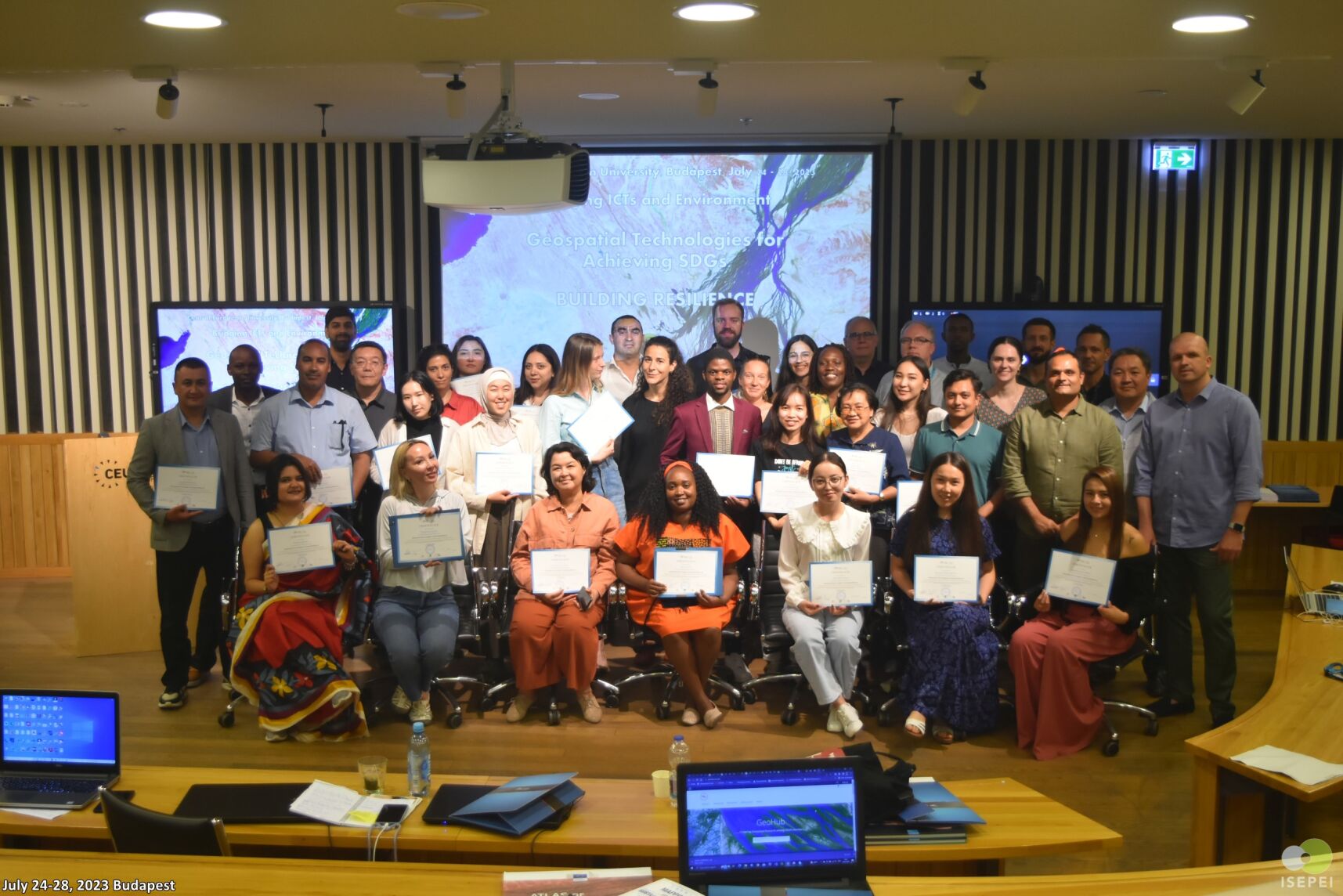
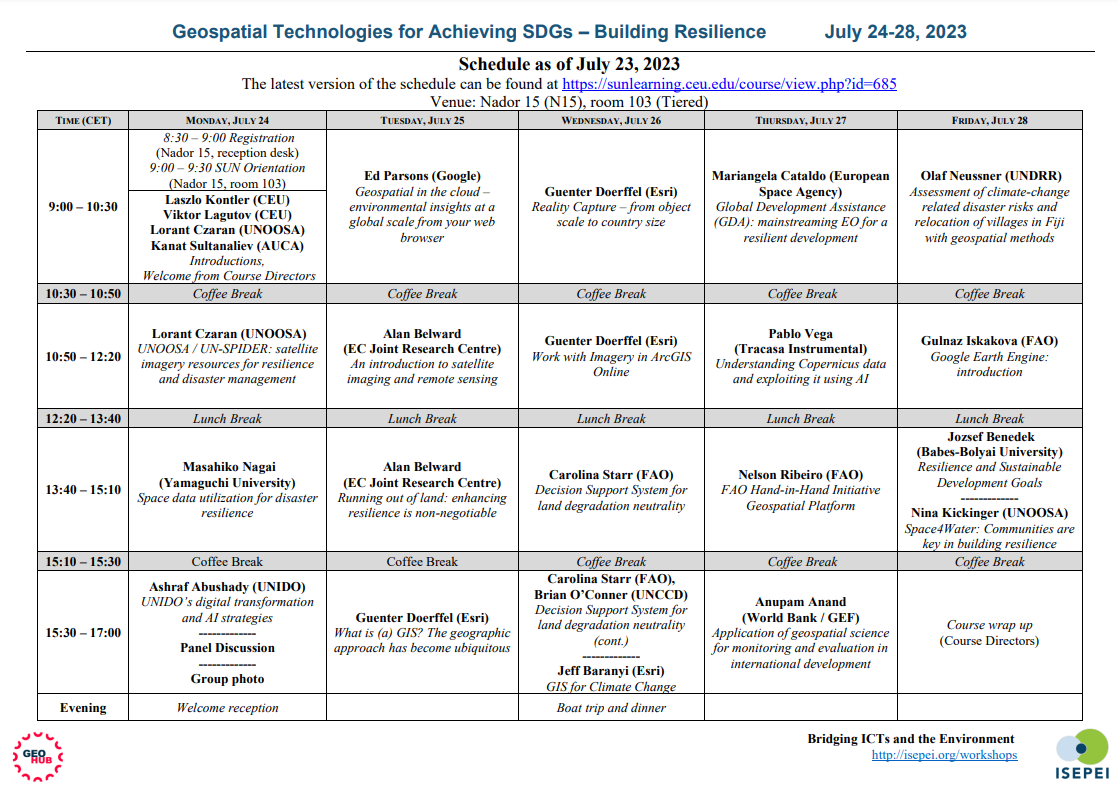
The thematic concentration of the course pertains to the adept deployment of geospatial technologies to concretize the attainment of the Sustainable Development Goals (SDGs). This thematic orientation emanates from a resolute aspiration to contend with pervasive global quandaries, notably encompassing ecological sustainability and the agrarian domain. Situated within the pedagogical framework of the course, erudition modules have been introduced, which stand poised to empower the academic institution in furnishing its erudite aspirants with contemporaneous cognizance and proficiencies that remain germane to the evolving contours of the occupational milieu. Inherent in the course's structure is the impetus to foment interdisciplinary erudition, thereby affording pupils hailing from heterogeneous academic lineages the opportunity to synergistically engage and partake in mutual enlightenment. Furthermore, the course enjoins the cultivation of pragmatic aptitudes that command a premium within sectors inclusive of urban delineation, agricultural pursuits, and exigent exigencies management, corroborating its vocational pertinence.
Maira Kussainova - Head of the Center for Sustainable Agriculture of KazNARU

.jpeg)
.jpeg)
.jpeg)